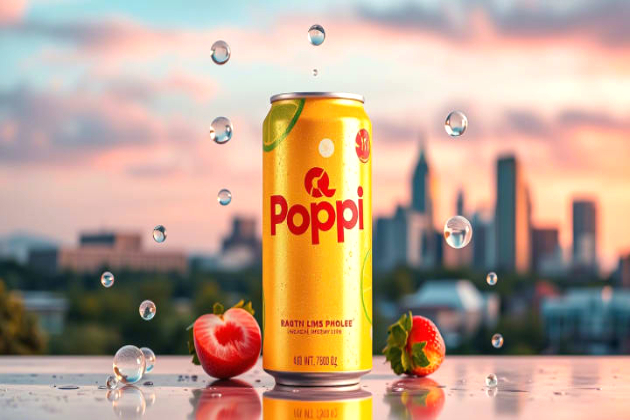Researchers demonstrate new technique for boosting plant growth with bacteria
ANI
18 Mar 2025, 01:57 GMT+10

North Carolina[US], March 17 (ANI): Researchers have successfully demonstrated a technique for encapsulating bacteria, which can subsequently be preserved and applied to plants to promote their growth and protect them from pests and infections. The technique paves the way for a variety of crop applications that will enable farmers to use these beneficial bacteria in conjunction with agrochemicals.
'Many of the beneficial bacteria we know of are fairly fragile, making it difficult to incorporate them into practical, shelf-stable products that can be applied to plant roots or leaves,' says John Cheadle, co-lead author of a paper on the work and a Ph.D. student at North Carolina State University. 'The technique we demonstrate here essentially stabilizes these bacteria, making it possible to develop customized probiotics for plants.'
At issue are plant growth-promoting bacteria (PGPBs), which are microbes that benefit plant health and growth, helping plants extract nutrients from the environment and protecting them from pests or pathogens.
'A longstanding challenge for making use of these bacteria has been that if you tried to come up with a single application that combined them with agrochemicals, like pesticides or fertilizers, the bacteria would die,' says Saad Khan, co-corresponding author of the paper and INVISTA Professor of Chemical and Biomolecular Engineering at NC State. 'We wanted to develop a solution that would allow bacteria to be used in conjunction with chemicals already in widespread use by growers.'
'By the same token, a healthy plant microbiome allows the plants to make better use of nutrients available in the soil and more resistant to pathogens,' says Tahira Pirzada, co-corresponding author and a research scholar at NC State. 'This may allow growers to use less fertilizer and pesticides without hurting crop production.'
The new technique revolves around a custom-made emulsion, with only a handful of ingredients. One part of the emulsion consists of a saline solution that contains PGPBs. For the proof-of-concept demonstration, the researchers used the bacteria Pseudomonas simiae and Azospirillum brasilense. P. simiae acts as a biopesticide by promoting pathogen resistance; A. brasilense acts as a biofertilizer by fixing nitrogen.
The second part of the emulsion consists of a biodegradable oil and a biodegradable polymer derived from cellulose. The polymer can be loaded with agrochemical active ingredients, which means the emulsion can incorporate these ingredients without relying on environmentally harmful organic solvents, which are typically used in pesticide formulations.
When the two parts of the emulsion are mixed together, the oil is broken into droplets that are distributed throughout the saline solution. The cellulose polymer sticks to the surface of these droplets, preventing the droplets from merging back together.
Essentially, the emulsion is a salad dressing with the oil droplets held in suspension throughout the saline solution. In practical terms, this would allow the PBPGs to be applied simultaneously with agrochemicals using the same emulsion.
To see how well the emulsion worked, the researchers did two tests.
First, the researchers compared the survival of PBPGs in the emulsion to the survival of PBPGs in the saline solution alone. Samples of each were stored at room temperature. After four weeks, the population of P. simiae in the emulsion was 200% higher than the population in saline; the population of A. brasilense in the emulsion was 500% higher.
Second, the researchers wanted to see how well pesticides would work when incorporated into the emulsion. For this, the researchers incorporated the pesticide fluopyram into the emulsion. They also added fluopyram to the saline solution by itself. The researchers then introduced C. elegans nematodes - which serve as a proxy for pests - into the emulsion and the saline solution.
'Not surprisingly, the pesticide in saline solution killed the pest very quickly - all of the pests were killed within an hour,' says Mariam Sohail, co-lead author of the paper and a recent Ph.D. graduate from NC State. 'The emulsion worked more gradually, killing 95% of the pests within 72 hours. This is valuable to know, since it suggests our technique could be used strategically to provide sustained protection against specific pests or pathogens.
'Ultimately, we found our technique allows us to incorporate multiple active ingredients into a single delivery system and allows the PGPBs to survive and thrive,' Sohail says.
'We also demonstrated that the emulsion improved the survival and reproductive success of these bacteria when applied to soil, as compared to applying the bacteria to the soil without the emulsion,' Cheadle says.
'Next steps will involve greenhouse testing and, later, microplots,' says Khan. 'We will likely want to evaluate different PGPBs and other active ingredients to see how they perform with different targeted plant species.' (ANI)
 Share
Share
 Tweet
Tweet
 Share
Share
 Flip
Flip
 Email
Email
Watch latest videos
Subscribe and Follow
Get a daily dose of Professional Autos news through our daily email, its complimentary and keeps you fully up to date with world and business news as well.
News RELEASES
Publish news of your business, community or sports group, personnel appointments, major event and more by submitting a news release to Professional Autos.
More InformationBusiness
SectionU.S. and world stock markets swamped by buyers Monday
NEW YORK, New York - Profit-takers swooped on Wall Street and global markets Monday, buying up heavily-sold-off stocks. We're in a...
PepsiCo nears $1.5 billion deal to acquire Poppi
HARRISON, New York: PepsiCo is on the verge of expanding its portfolio with a major acquisition. The beverage giant is reportedly in...
Dollar General warns of slowing sales amid economic strain
GOODLETTSVILLE, Tennessee: Dollar General is bracing for a challenging year ahead, forecasting weaker-than-expected sales and profits...
Intel stock jumps 15% as Lip-Bu Tan named CEO
SANTA CLARA, California: Intel's stock soared nearly 15 percent this week following the announcement that former board member Lip-Bu...
UAW files labor complaint as Volkswagen cuts Tennessee production
DETROIT, Michigan: Volkswagen's decision to scale back production at its Chattanooga, Tennessee plant has sparked backlash from the...
Spotify paid a record $10 billion in music royalties in 2024
STOCKHOLM, Sweden: Spotify set a new milestone in 2024, paying out US$10 billion in royalties—the highest annual payout to the music...
Engineering
SectionResearchers demonstrate new technique for boosting plant growth with bacteria
North Carolina[US], March 17 (ANI): Researchers have successfully demonstrated a technique for encapsulating bacteria, which can subsequently...
"We need better logistics... construction of naval and aerial hub": Peru Foreign Minister on strengthening economic ties with India
New Delhi [India], March 17 (ANI): Peru's Foreign Minister Elmer Schialer on Monday emphasised the importance of improving logistics...
Ireland is "very welcoming" for students, it has post-study visa arrangement: Education Minister Lawless
New Delhi [India], March 17 (ANI): James Lawless, Ireland's Education Minister on Monday said his country is 'very welcoming' for students...
GRSE completes Contractor Sea Trials of two warships simultaneously
Kolkata (West Bengal) [India], March 17 (ANI): In keeping with its commitment to deliver top-quality warships to the Navy and Coast...
China's new tonne-class unmanned transport aircraft completes maiden flight
An aerial drone photo shows China's domestically developed tonne-class unmanned transport aircraft, the TP1000, conducting its maiden...
CHINA-YANGTZE RIVER-SHIELD TUNNELING MACHINE-CONSTRUCTION SITE (CN)
(250317) -- SHANGHAI, March 17, 2025 (Xinhua) -- Workers are seen at Linghang large diameter shield tunneling machine at the construction...












